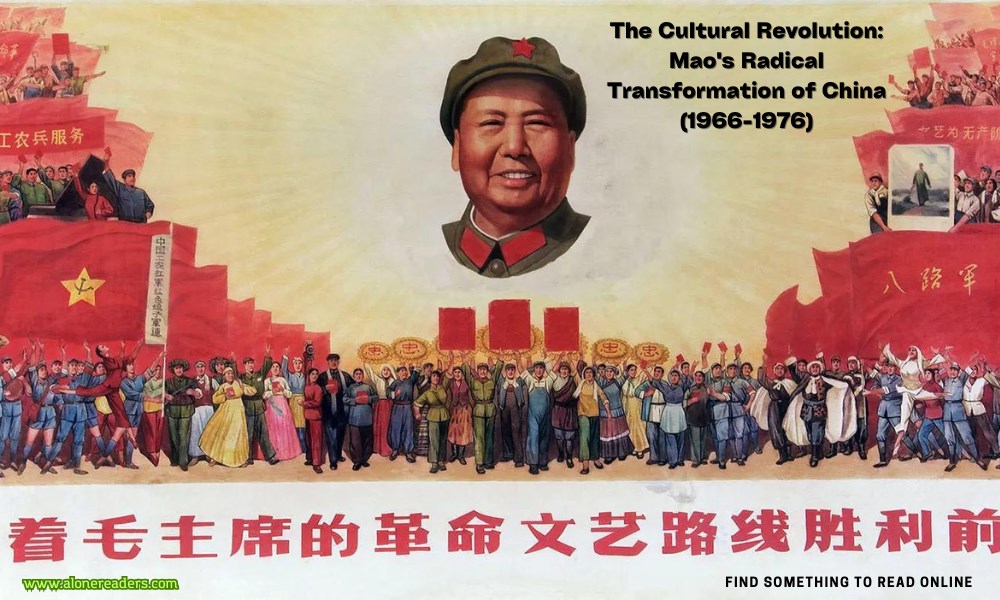
The Cultural Revolution, officially known as the Great Proletarian Cultural Revolution, was a sociopolitical movement in China that lasted from 1966 to 1976. Initiated by Chairman Mao Zedong, the movement aimed to preserve Chinese communism by purging remnants of capitalist and traditional elements from Chinese society. This decade-long upheaval sought to enforce Maoist orthodoxy within the Communist Party of China and throughout the country, leading to widespread chaos, violence, and cultural destruction.
Mao Zedong launched the Cultural Revolution in May 1966, with a call to the youth to rise up against the "Four Olds": old customs, old culture, old habits, and old ideas. This movement quickly gained momentum as millions of young people, organized into groups known as Red Guards, began to attack intellectuals, destroy cultural artifacts, and persecute those deemed counter-revolutionaries. Schools and universities were shut down, and students were encouraged to criticize their teachers and administrators. The fervor of the Red Guards led to a breakdown in civil order, and China descended into a state of near-anarchy.
The Cultural Revolution had profound and far-reaching impacts on Chinese society. Intellectuals and professionals were targeted, leading to a significant loss of expertise and talent in various fields. Many prominent figures were publicly humiliated, imprisoned, or even killed. The educational system was severely disrupted, and a generation of Chinese youth missed out on formal education. The Red Guards, initially empowered by their revolutionary zeal, eventually became a destabilizing force, leading to violent clashes and widespread destruction.
Mao's wife, Jiang Qing, along with her close associates known as the Gang of Four, played a significant role in the Cultural Revolution. They pushed for radical cultural and political changes, using their influence to attack political rivals and consolidate power. This factional struggle within the Communist Party led to intense political infighting and purges, further destabilizing the government and society. The Cultural Revolution also saw the rise of personality cult around Mao, with propaganda glorifying him as the supreme leader and revolutionary hero.
Economically, the Cultural Revolution had a devastating effect on China's development. Industrial and agricultural production plummeted as workers were diverted from their duties to participate in political campaigns and struggles. The disruption of education and professional life also meant that technological and scientific progress was severely hindered. The focus on ideological purity over practical competence led to widespread inefficiency and mismanagement, further exacerbating the country's economic woes.
Culturally, the Cultural Revolution sought to eradicate traditional Chinese culture and replace it with a new, revolutionary culture aligned with Maoist principles. Countless cultural relics, historical sites, and religious artifacts were destroyed. Traditional art forms, literature, and music were denounced as feudal and bourgeois, leading to a significant loss of cultural heritage. In their place, revolutionary operas, model plays, and propaganda literature were promoted, reflecting the ideological fervor of the time. This cultural destruction left a lasting scar on Chinese society, with many historical treasures lost forever.
The impact of the Cultural Revolution extended beyond China's borders. The radical policies and the ensuing chaos alarmed other socialist countries, straining China's relationships with its allies. Internally, the movement created deep social divisions and distrust, with families and communities torn apart by political persecution and ideological fervor. The trauma and suffering experienced during this period left an indelible mark on the collective memory of the Chinese people.
The Cultural Revolution officially ended with Mao's death in September 1976 and the subsequent arrest of the Gang of Four. The new leadership, led by Deng Xiaoping, embarked on a program of economic reforms and modernization, seeking to undo the damage caused by the previous decade. The official verdict on the Cultural Revolution, issued by the Communist Party in 1981, condemned it as a "catastrophe" and attributed its excesses to Mao's personal mistakes and the manipulation by the Gang of Four.
In retrospect, the Cultural Revolution is seen as a tragic period in Chinese history, characterized by mass hysteria, political persecution, and cultural destruction. Its legacy continues to influence Chinese society and politics, with the memories of this tumultuous era shaping contemporary attitudes towards governance, ideology, and cultural heritage. The lessons learned from the Cultural Revolution underscore the dangers of unchecked political power and the importance of safeguarding cultural and intellectual freedoms.
Today, the Chinese government maintains a cautious approach to discussing the Cultural Revolution, recognizing its historical significance while seeking to move forward from its painful legacy. The scars of this period remain, serving as a stark reminder of the destructive potential of radical ideological movements and the resilience of a society striving to rebuild and heal from its past.